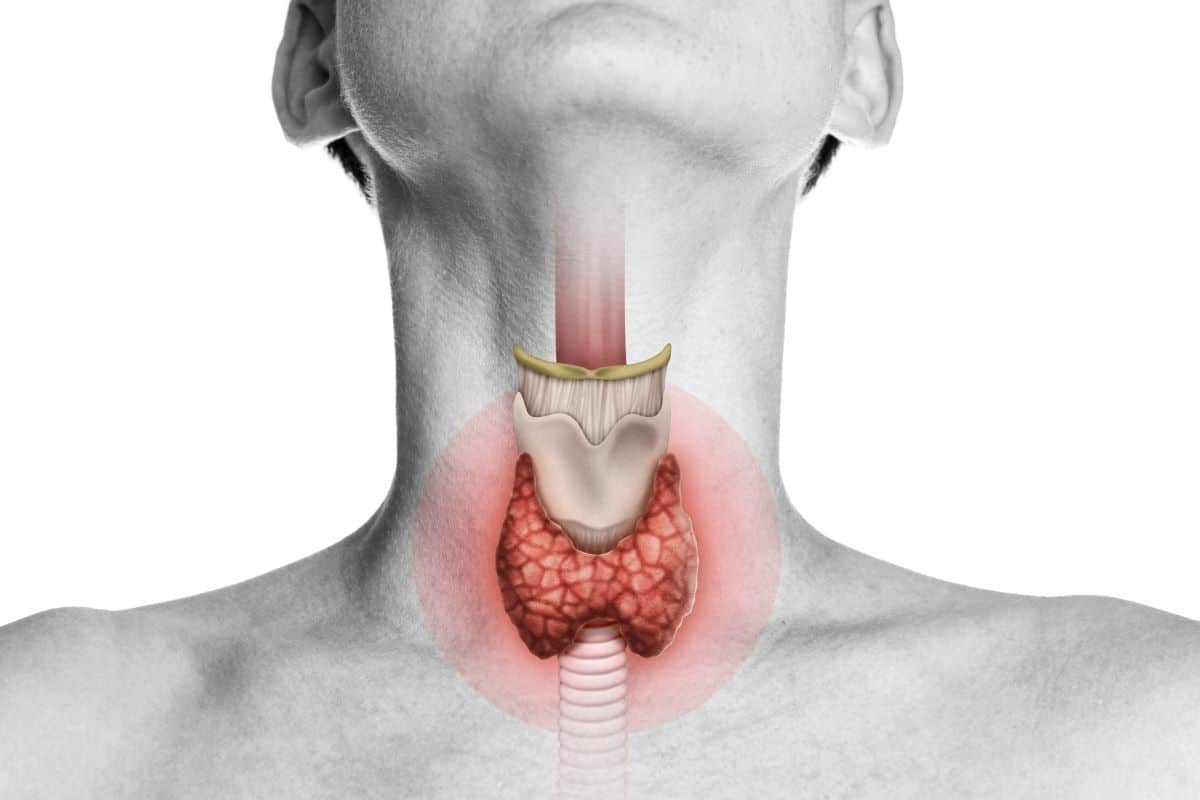What Are the Thyroid Glands?
The thyroid is an endocrine gland located on either side of the trachea just above the collarbone. It produces a hormone that helps regulate metabolism.
Thyroid Conditions

Hyperthyroidism
Hyperthyroidism is the result of excess thyroid hormone production. This can cause a rapid or irregular heartbeat, anxiety, irritability, nervousness, fatigue, heat intolerance, excessive sweating, tremors, weight loss and increased bowel movement frequency.
Hypothyroidism
Hypothyroidism is a state of inadequate hormone production. Symptoms include depression, fatigue, sore muscles, dry skin, puffy face, swollen legs, weight gain, constipation and sensitivity to cold.
Parathyroid Disorders
What is Hyperparathyroidism?
Hyperparathyroidism occurs when too much PTH is secreted into the bloodstream. This creates an imbalance of high calcium levels and low phosphorous levels.
Symptoms include osteoporosis, kidney stones, bone and joint pain, weakness, lethargy, loss of concentration, depression, loss of appetite, constipation, nausea and vomiting. The cause may be linked to a benign tumor or enlarged parathyroid gland. Surgery is the preferred treatment for hyperparathyroidism.
What is Hypoparathyroidism?
When too little PTH is produced, calcium levels in the blood drop while phosphorous levels rise. This condition is known as hypoparathyroidism and causes weakness, anxiety, fatigue, muscle aches and cramps, headaches, muscle spasms, cataracts, depression, mood swings, memory loss and tingling sensations in the fingers, toes and lips.
Injury to the parathyroid glands, endocrine disorders and genetic conditions are the most common causes of hypoparathyroidism. Calcium carbonate and vitamin D supplements are given to restore the proper balance of calcium and phosphorous in the body.
Thyroid Nodules
Thyroid nodules are lumps in the thyroid gland that may be solid or filled with fluid. They are usually noncancerous and rarely cause problems. In some cases, they may enlarge to the point of causing breathing and swallowing difficulties or stimulating overproduction of thyroid hormone.
What Causes Thyroid Nodules?
Thyroid nodules may develop due to a variety of conditions such as iodine deficiency, excess tissue growth, thyroid cysts, goiter (enlarged thyroid), Hashimoto’s disease (a thyroid disorder resulting in inflammation and reduced hormone production) and cancer. Heredity is also a factor; if thyroid nodules run in your family, you are more likely to have them.
Thyroid Nodule Symptoms
Nodules sometimes produce additional thyroid hormone, which causes an imbalance that leads to hyperthyroidism. Symptoms include rapid heartbeat, weight loss, anxiety, tremors, irritability, excessive perspiration and intolerance to heat. These are the result of a sped-up metabolism. In rare cases, thyroid nodules turn out to be cancerous.
How Are Thyroid Nodules Treated?
Treatment depends on the size of the thyroid nodule and whether or not it’s cancerous. Benign nodules may be removed through surgery or thyroid hormone suppression therapy. If nodules are causing hyperthyroidism, you’ll likely receive radioactive iodine or anti-thyroid medication. Surgery is the option of choice for malignant (cancerous) thyroid nodules.
Thyroid Surgery
Thyroid Gland Removal
When certain conditions interfere with normal thyroid production, surgical removal of the thyroid gland is performed. This is usually done when thyroid cancer has been detected, an otherwise benign thyroid nodule grows so large it causes problems or hyperthyroidism (a disorder in which excess thyroid hormone is produced) does not respond to treatment with medications or radioactive iodine, though this is rare.
Call South Valley Ear Nose & Throat at (801) 566-8304 for more information or to schedule an appointment.